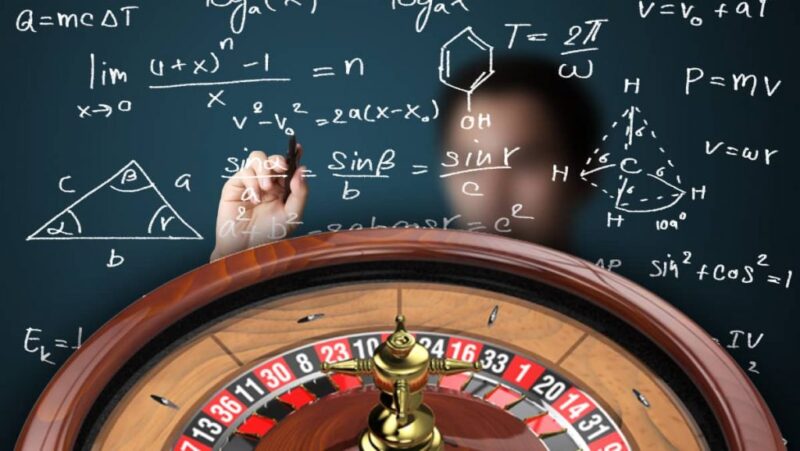The allure of casino games has captivated countless players, drawing them into a world where chance dances with strategy, and fortunes can change in the blink of an eye. Behind the flashing lights and the intoxicating sounds of rolling dice or spinning slots, a complex tapestry of mathematics underpins every game.
But is it truly possible to tilt the odds in your favor? This exploration delves into the intricate calculations that govern popular games—from the statistical probabilities of blackjack to the enigmatic patterns of roulette. As we unravel the numbers and strategies, we’ll discover whether mastering the math can transform the gamblers fate or if, ultimately, luck reigns supreme in the unpredictable realm of casinos.
Prepare for a journey where numbers narrate tales of triumph and despair, and where your understanding of the game could just hold the key to winning.
Introduction: The Allure of Casino Games

Casino games have long captivated the human imagination, drawing players into vibrant worlds filled with glamour, excitement, and the tantalizing possibility of fortune. Beneath the glittering chandeliers and the clinking of chips lies a complex tapestry of chance and strategy, where the allure of winning can often overshadow the mathematical odds.
Each spin of the roulette wheel, every shuffle of the cards, represents not just a gamble but a dance with probability, where skill and luck intertwine in unpredictable ways. As players migrate from the exhilarating high of a jackpot win to the somber reflection of a loss, the question lingers: Is there a method to this madness? To truly understand the potential for success within these games, one must delve deeper into the intricate mathematics that govern them, revealing insights that can illuminate the path to wiser betting decisions and perhaps even a greater chance of victory.
Understanding Probability: The Foundation of Gambling

Understanding probability is essential for anyone delving into the intricacies of gambling, as it forms the very bedrock upon which casino games are built. Every spin of the roulette wheel or flip of the blackjack card is governed by a complex dance of chance and statistics.
While the allure of winning big can be intoxicating, acknowledging the mathematical realities behind these games can be sobering. Think about it: even the simplest bets involve a series of outcomes with defined probabilities, where the house edge looms large like a shadow, ready to tip the scales in favor of the casino.
So, whether you find yourself captivated by the thrill of the slots or the strategic maneuvering at the poker table, grasping the underlying principles of probability can illuminate the path to more informed decisions, transforming mere luck into a calculated strategy. Ultimately, it’s not just about playing but understanding the odds—because knowledge, after all, is a player’s best bet.
House Edge: An Inescapable Reality

The house edge is a fundamental concept in the world of casino gaming, a mathematical reality that cannot be ignored by players hoping to beat the odds. At its core, the house edge represents the built-in advantage that casinos maintain over every game they offer, ensuring that, in the long run, they always come out ahead.
Whether it’s the spinning roulette wheel, the dealt blackjack cards, or the flashing slot machines, each game is meticulously designed with this statistical cushion. This does not mean, however, that players are merely fodder for the gaming establishment; spirited strategy and a keen understanding of game mechanics can tilt the odds in a player’s favor—albeit temporarily.
Yet, despite these fleeting victories, the relentless grip of the house edge looms large, reminding enthusiasts that luck is a fickle friend and that the odds are ultimately stacked against them. In this intricate dance between chance and strategy, one can revel in the thrill, but must always remain wary of the numbers that tell a sobering tale.
Conclusion
In conclusion, while the allure of casino games may tempt players with the prospect of quick riches, the mathematical principles that govern these games highlight the inherent risks involved. Understanding concepts such as probability, house edge, and variance can significantly enhance a player’s approach, allowing for more informed decisions.
While no strategy guarantees victory, employing a sound mathematical framework can improve one’s chances of success. Additionally, promotional offers like the gdfplay no deposit bonus code can provide players with valuable opportunities to practice and refine their skills without the immediate pressure of monetary loss. Ultimately, recognizing the role of math in casino gaming can lead to a more strategic and enjoyable gambling experience.


